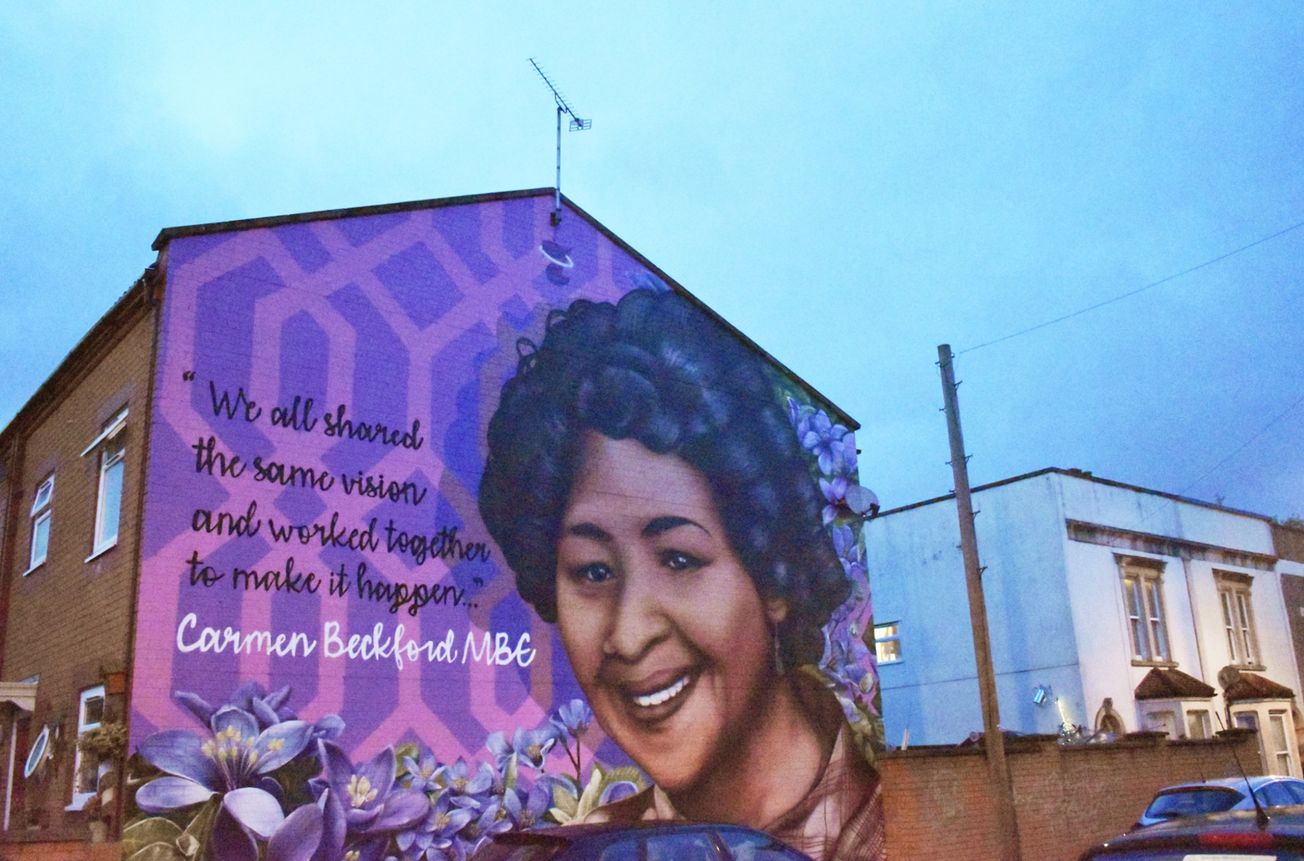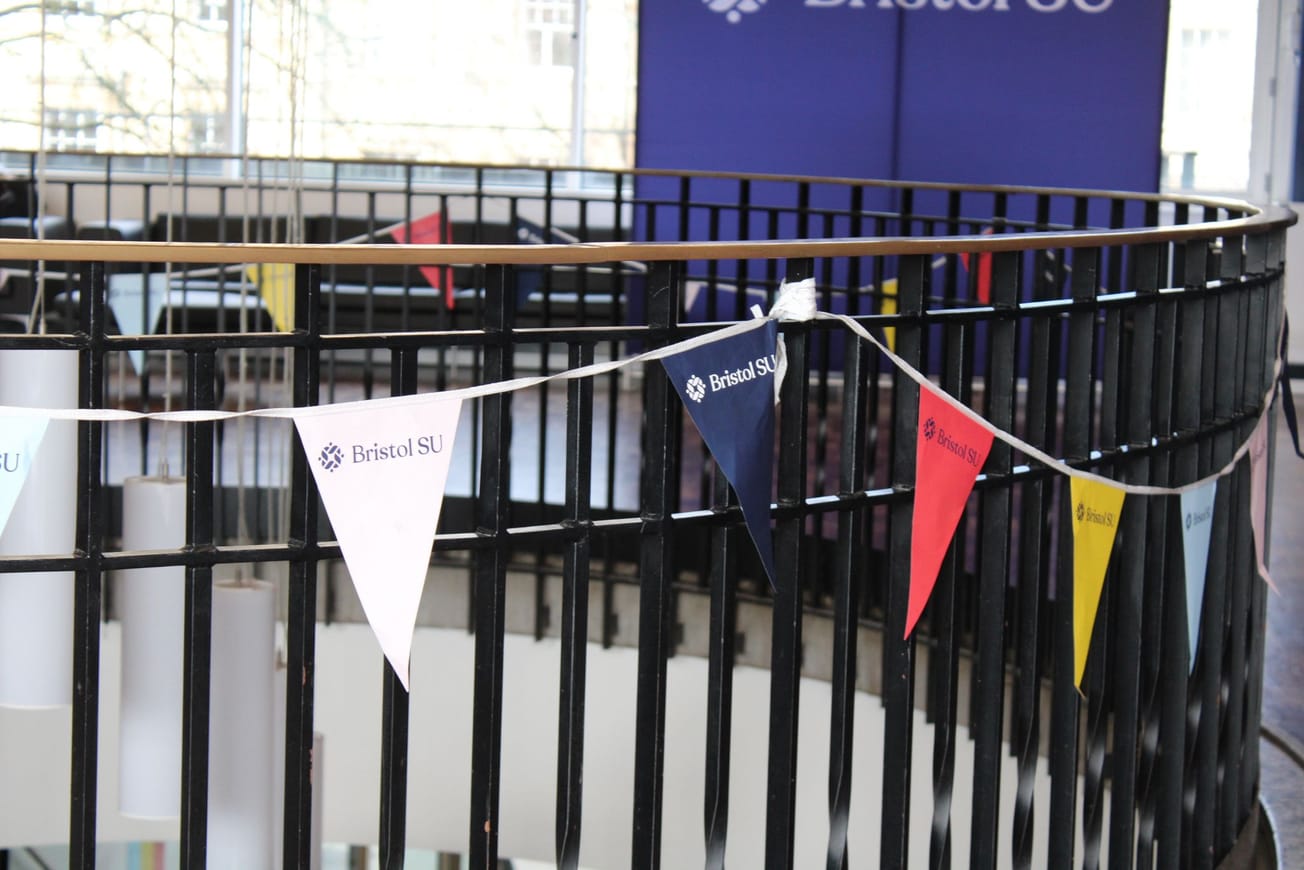By Hope Talbot, First Year History
Bristol is a city known for its history of ground-breaking political voices, creative flair, and innovative minds. However, this reputation so often centres on the achievements of men, particularly white men from upper-class backgrounds. As Bristol continues to reckon with honouring historic individuals, it is worth spotlighting and noting the women who are so often excluded from the popular canon. From the Suffrage Movement to revolutionising understandings of engineering, here’s a list of Bristol women who radically changed the world.
Carmen Beckford
The namesake of the University’s very own Beckford Bar, Carmen Beckford was a trailblazer in race relations in Bristol. Moving from Jamaica to Bristol in 1965, Carmen initially trained as a nurse. Soon after her arrival, she joined the Commonwealth Co-ordinated Committee (CCC), an organisation committed to improving the lives of those living in St Pauls and beyond, promoting equal opportunity and inclusion. Working with the CCC, Carmen helped organise the Bristol Bus Boycotts to call attention to discriminatory practices in the hiring of Bristol Bus conductors.
Following her work as a local community organiser, Carmen became Bristol’s first Race Relations Officer, working to promote greater inclusion across Bristol’s diverse and growing communities through the 70s and 80s. Alongside this work, she established the now infamous St Pauls Carnival, a beloved celebration of African Caribbean culture held annually across Bristol.
Ellen Sharples
#ArtistOfTheDay: British painter #RolindaSharples (1793-1838)
— History of Portraiture (@OldPortraiture) May 23, 2021
Portrait of the Artist's Mother #EllenSharples (1769-1849) #Sharples #BritishArt #WomenArtists
Royal West of England Academy (RWA) pic.twitter.com/nT39LI4ODp
A skilled painter and patron of the Bristol arts scene, Ellen Sharples spent much of her life in America, before moving to back to England in 1811. Specialising in portraits and miniatures, her work features throughout the collections of major art galleries in both England and America. Settling permanently in Clifton, Sharples left a substantial amount to the Bristol Academy for the Promotion of Arts, which was instrumental in creating Bristol’s first art gallery, the Royal West of England Academy.
Sarah Guppy
Defying the expectations of the hyper-masculine environment of engineering, Sarah Guppy designed an early alternative to the Clifton Suspension Bridge. While her designs eventually made way for the designs of Isambard Kingdom Brunel, she continued to offer technical advice throughout the construction. Beyond her innovations in civic engineering, Guppy also designed a Teas made and a bed that transformed into a home gymnasium, alongside raising six children.
In popular culture, Guppy is experiencing a revival, with Shelia Hannon’s recent play, An Audience with Sarah Guppy, discussing the life of this little known designer and inventor.
Angela Carter
We will maybe cry when we sell it. You know the book collector who is a stickler for condition? Well, this is the copy of their dreams. #angelacarter pic.twitter.com/dG3VJBnkuF
— The Second Shelf (@secondshelfbks) July 10, 2019
An alumni of the University of Bristol, Angela Carter is a writer renowned for her nuanced brand of feminist magical realism. In her most famous work, The Bloody Chamber, Carter retells European fairy tales with a macabre, gothic style, with female liberation at the centre of her narratives.
After graduating with an English Literature degree, Carter travelled globally, taking on various writing residences at esteemed universities such as Brown University, and the University of Adelaide. In turn, Carter was a trailblazer in setting the standard for radical feminist literature of the 20th century.
Annie Kenney
Arrested alongside Christabel Pankhurst for assault and obstruction of a male politician, Annie Kenney was the only working-class woman in the senior hierarchy of the Women’s Social and Political Union (WSPU). Evidence of Annie Kenney’s time in the city remains, as her former residence at 23 Gordon Road, Clifton is marked with a blue plaque. Another residence of interest is also that of Lady Emmeline Pethwick Lawrence, a fellow suffragette born at 20 Charlotte Street. Throughout Bristol, you can also find other sites of female protest, with the Victoria Rooms and Coombe Dingle as key sites of Suffragette Campaigning.
Radicalism has and continues to take many different forms in Bristol. From engineers to political campaigners, Bristol continues to be a hub of progressive radical action, with activists such as Lucy Turner, leading the charge in fighting for equality and acceptance today.
Featured Image: Bristol SU | Facebook









